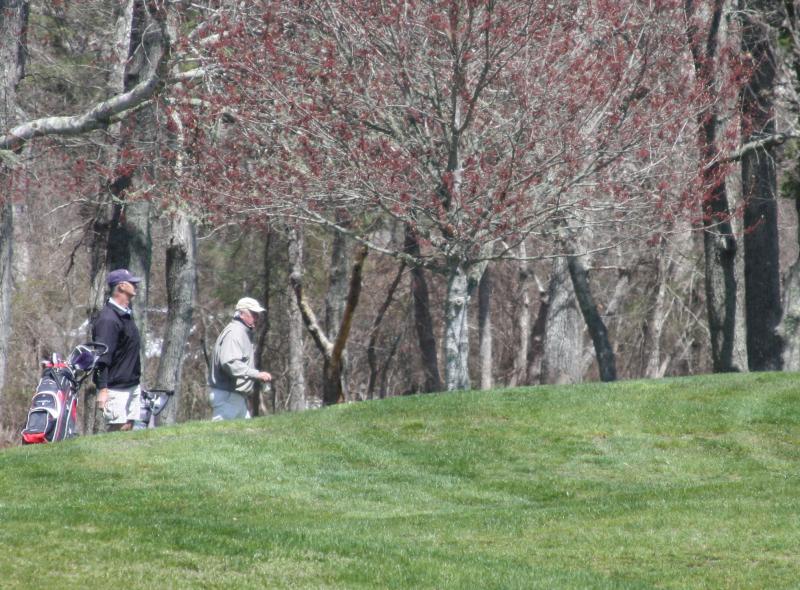Officials talk conservation plans for Little Harbor
Play golf now, enjoy open space in the future: That’s the plan for the Little Harbor Country Club if the town votes to approve the purchase of the property using Community Preservation funds.
“We’re buying 50 acres of open space,” said Judith Whiteside, a Select Board member and the chief advocate for the purchase. “It happens to have a golf course on it, but it is, in fact, recreational space and open space.”
The Community Preservation Committee voted on Jan. 27 to allow the town’s request for $2 million in funds to go before voters at the Feb. 22 Special Town Meeting for approval.
But the Committee also set four conditions the town must meet before Town Meeting, related to a survey of the property, an appraisal of its value, an environmental study, and a conservation restriction.
A conservation restriction would be legally-binding and stay in place forever, preventing any future development of the property. That means that once the land was no longer being used for golf, it would remain open space.
Wareham Land Trust Executive Director Elise Leduc-Fleming has been working with the town to determine what such a restriction would look like — although the trust’s board of directors still needs to vote to agree to hold the restriction.
Leduc-Fleming said that the conservation restriction on the golf course would be very different from others held by the Land Trust. But conservation organizations in other Massachusetts towns — Falmouth and Stowe — hold conservation restrictions on golf courses, so the idea is not unprecedented, she said. The restriction would delineate what uses of the land are allowed. The golf course could continue to operate as usual, but only within the course’s existing footprint. No more land could be cleared.
“At the point where golf is no longer viable, [the land] would go back to open space,” Leduc-Fleming said.
She said it’s currently unclear what level of public access would be possible at Little Harbor while the golf course is operating. At minimum, she said, the public would be able to walk or snow-shoe around the property during the winter while the course is inactive.
Leduc-Fleming emphasized that a conservation restriction is the only way to safeguard the property from development in perpetuity, and noted that the land would eventually become open space accessible to all. She said at some point, rising sea levels will encroach upon the course — and it’s possible that the course will cease to be profitable even before that. But when golf ends, full public access would begin.
Leduc-Fleming also noted that the land provides several conservation opportunities that are rare in town. Here, the salt marsh has room to migrate inland as sea levels rise, and the golf course itself could be restored to a native meadow environment. The hope is that the land would not simply be abandoned, Leduc-Fleming said, but actively managed to promote the development of native habitats.
If approved, the $2 million in Community Preservation funding would be split — half from reserves, and half bonded to be paid back over time. Community Preservation funds come from a surcharge on property taxes and can only be used — with Town Meeting approval — for outdoor recreation, historic preservation, open space and affordable housing.
The Special Town Meeting warrant asks voters to approve a total cost of $2.6 million for the purchase. The remaining $600,000 could come from the town’s free cash or be bonded. Those funds would pay for the golf course’s equipment and other costs associated with the purchase, including a new septic system, a survey of the property, and a fee related to the conservation restriction. Voters could also approve the purchase but not the use of Community Preservation funds, which would force the town to find another way to fund the purchase.
The Little Harbor Country Club has been on the market for some time, and its owners were unable to find a buyer who would maintain it as a golf course. In 2021, Mass Audubon was working to buy the property to convert it to conservation land. After pushback from town officials and golfers, they pulled out of the deal.
Officials say that if the town doesn’t purchase the land, other buyers are ready, with plans to build housing on the property.














